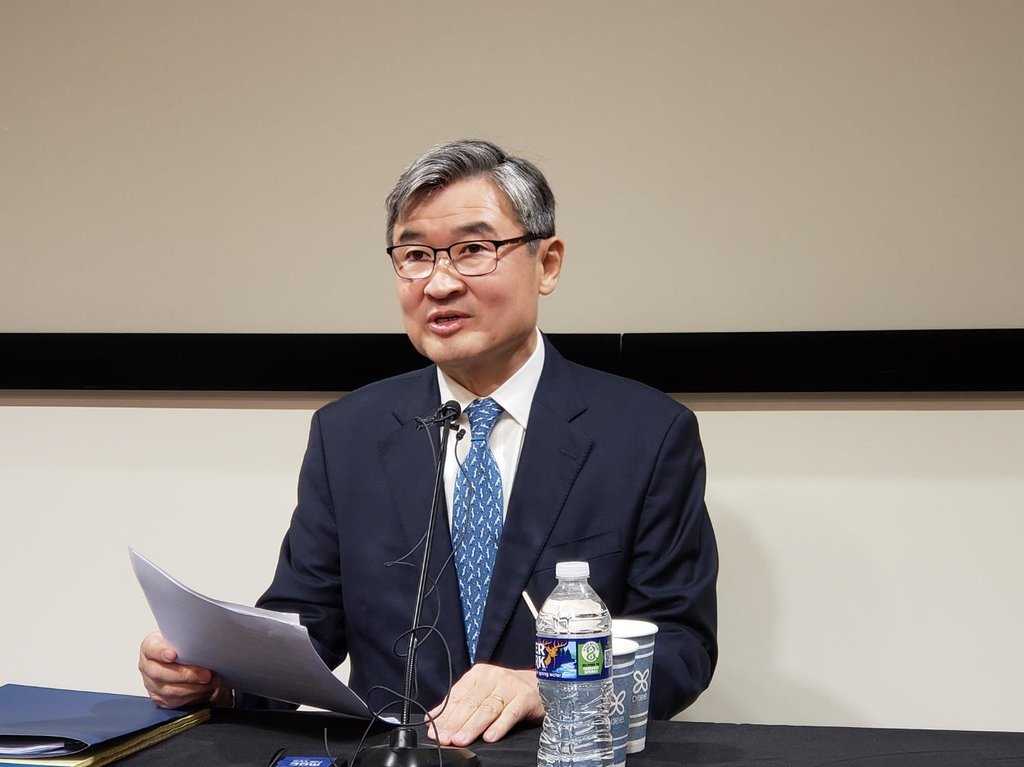- California Assembly OKs highest minimum wage in nation
- S. Korea unveils first graphic cigarette warnings
- US joins with South Korea, Japan in bid to deter North Korea
- LPGA golfer Chun In-gee finally back in action
- S. Korea won’t be top seed in final World Cup qualification round
- US men’s soccer misses 2nd straight Olympics
- US back on track in qualifying with 4-0 win over Guatemala
- High-intensity workout injuries spawn cottage industry
- CDC expands range of Zika mosquitoes into parts of Northeast
- Who knew? ‘The Walking Dead’ is helping families connect
S. Korea, U.S. making ‘practical’ progress in strengthening U.S. extended deterrence: Amb. Cho
South Korea and the United States are making “practical” progress in enhancing the implementation of U.S. extended deterrence, South Korean ambassador to the U.S. Cho Tae-yong said Monday.
Cho also said the allies will hold additional joint exercises to further strengthen the extended deterrence.
Extended deterrence refers to U.S. commitment to the defense of South Korea, using the full range of its military capabilities, including nuclear weapons.
“We have made practical progress in strengthening the implementation of extended deterrence,” the South Korean diplomat said while meeting with reporters in Washington.

Seoul and Washington held the eighth Deterrence Security Committee Table-top Exercise last week in Washington, which the allies said focused on how to respond to any potential use of nuclear weapons by North Korea.
Cho said the countries will seek to hold follow-up exercises “in the very near future.”
Efforts to strengthen the U.S. extended deterrence followed an unprecedented 69 North Korean ballistic missile tests last year, which marked a new record of ballistic missiles fired by the country in a single year.
Cho said Seoul strongly “condemns” North Korea’s missile provocations, noting Pyongyang again fired an intercontinental ballistic missile earlier this month.
“It is deplorable that North Korea continues to focus on developing nuclear and missile capabilities despite serious food shortages it faces,” he said.
“(We) have made it clear to North Korea through foreign ministerial talks of South Korea, the U.S. and Japan, South Korea’s unilateral sanctions and joint air defense drills of South Korea and the U.S. that its provocations only lead to more international sanctions and further isolation of the North in the international community,” added Cho.
The ambassador also highlighted Seoul’s commitment to engaging in dialogue with North Korea, saying, “The government will continue its unwavering efforts to create an environment where North Korea has no choice but to return to dialogue.”












